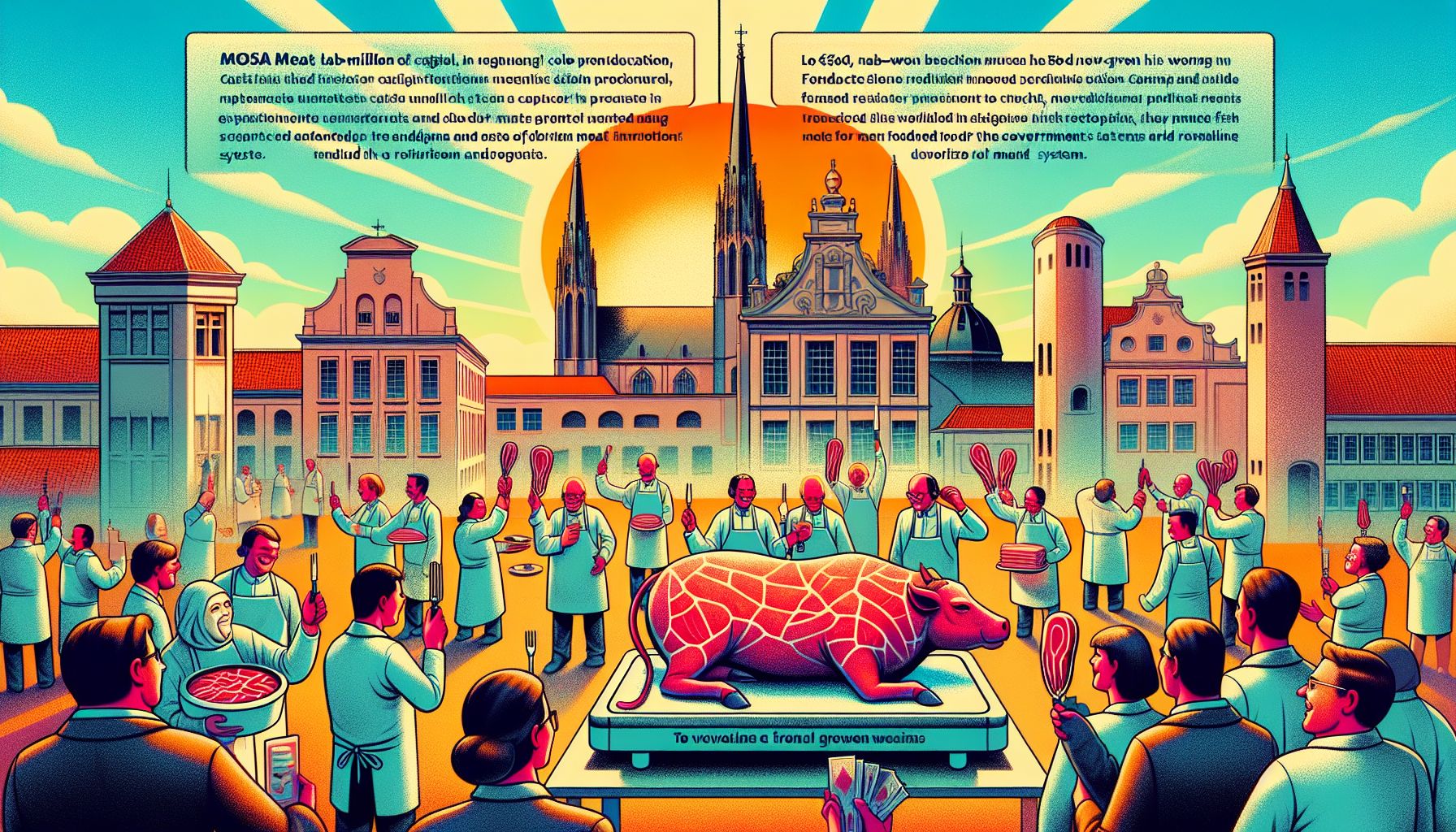Mosa Meat Secures €40 Million to Advance Lab-Grown Beef Production

Maastricht, Monday, 29 July 2024.
Mosa Meat, a pioneer in cultivated meat, has raised €40 million in new capital to scale production processes and prepare for market introduction. The oversubscribed funding round, led by Lowercarbon Capital and M Ventures, includes government-funded entities and traditional meat sector partners. Despite economic challenges, Mosa Meat plans to conduct its first formal tastings of cultivated beef in the Netherlands, aiming to fundamentally reform the global food system.
Innovative Approach to Sustainable Meat
Mosa Meat, headquartered in Maastricht, Netherlands, is at the forefront of the cultivated meat industry. The company was co-founded in 2016 by Mark Post and Peter Verstrate, who introduced the world’s first cultivated beef hamburger in 2013. The €40 million raised in this latest funding round is a testament to the growing interest and confidence in lab-grown meat as a viable alternative to traditional livestock farming. This innovation falls under the categories of food, healthtech, and agritech, focusing on providing cleaner and more sustainable meat options.
How Lab-Grown Beef Works
Lab-grown beef, or cultivated meat, is produced by harvesting muscle cells from a living cow. These cells are then cultured in a nutrient-rich environment that mimics the natural conditions inside an animal’s body. Over time, the cells multiply and form muscle tissue, which is then harvested and processed into meat products. This method significantly reduces the environmental impact associated with traditional meat production, as it requires less land, water, and feed, and produces fewer greenhouse gases.
Benefits of Cultivated Meat
The benefits of lab-grown beef are manifold. Firstly, it addresses the ethical concerns related to animal welfare by eliminating the need to raise and slaughter animals. Secondly, it offers a sustainable solution to the environmental challenges posed by conventional meat production, such as deforestation, water scarcity, and high greenhouse gas emissions. Additionally, cultivated meat can potentially offer health benefits by reducing the risk of foodborne illnesses and allowing for better control over the nutritional content of the meat.
Key Players and Investment
The recent funding round saw participation from both new and existing investors, including Lowercarbon Capital, M Ventures, Invest-NL, LIOF, and Limburgs Energie Fonds (LEF). Traditional meat sector partners like PHW Group also joined the round, highlighting the industry’s shift towards sustainable practices. Notable investors such as Leonardo DiCaprio, Mitsubishi Corporation, and Bell Food Group have previously backed Mosa Meat, further cementing its position as a leader in the cultivated meat sector.
Future Prospects and Market Introduction
Mosa Meat is gearing up for its first formal tastings of cultivated beef in the Netherlands, aiming to gather feedback and refine its product before market introduction. The company’s mission to fundamentally reform the global food system is ambitious yet necessary, given the increasing demand for sustainable food sources. With regulatory frameworks in place and growing consumer acceptance, Mosa Meat is well-positioned to make a significant impact in the food industry.

